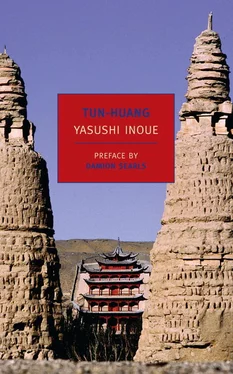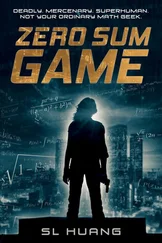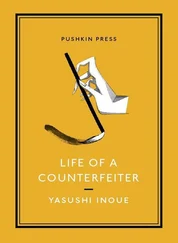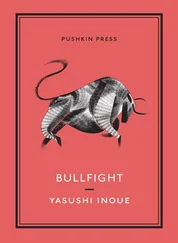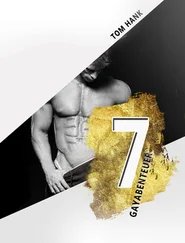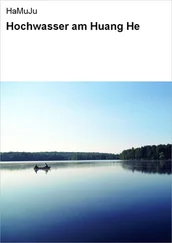Hsing-te went out and gathered together the camel men and set to work immediately. Three of the men were given the task of opening the crates and removing the scrolls and documents; the other seven were to carry them to the cave; and the three monks would remain in the cave and store them. Hsing-te had decided to have the crates opened because it was difficult to take the boxes through the small entrance, and also because it would require two men for each crate and this seemed inconvenient. In any case, it was essential to store away the goods as soon as possible.
The crates were being opened one after the other. The camel men worked very roughly. Two men picked up a crate, raised it, and dashed it onto the ground. Or they hit the outside with poles or rocks until the crates cracked open. The scrolls and papers inside had all been wrapped into small parcels to avoid damage.
The seven camel men made many trips bringing bundles of sutras to the secret cache. Hsing-te also joined in and helped. Some bundles were heavy, others light. There were small and large ones. Hsing-te and the men, carrying the bundles with both arms, trudged up the shifting, sandy hill, entered the stone cave, handed the bundles to the monks within and then returned. On the way, the men often brushed past others traveling in the opposite direction. No one spoke, and each occupied himself with his work as if this were his heaven-appointed task.
When Hsing-te carried the scrolls and returned empty-handed, he walked with his eyes focused on his dark shadow that moved with him on the sand. Everyone walked slowly. Drowsiness constantly overcame the men. As slow as the progress was, however, there was a certain steadiness in their mechanical, continuous movement. A rough estimate of the number of Buddhist scrolls and documents was in the tens of thousands.
If at all possible, Hsing-te wanted to complete the work before Kuang returned for the second time. If Kuang should arrive while the work was in progress and should learn what was being carried into the secret cache, he would be wild with rage. But Hsing-te had no time for such thoughts now. He decided that if it came to pass, he would handle the situation then.
The mountainous pile of crates gradually dwindled and the pile of wood from the crates grew higher.
The cave was finally filled with scrolls and papers. One of the three monks came out, then the second one appeared, and at the end, the oldest monk remained inside to complete the work.
“All that’s left now is to seal up the entrance,” Hsing-te said. The three monks volunteered to take over the work.
Hsing-te took from his pouch the scroll of the Heart Sutra he had copied and, groping in the dark, placed it in the cave on top of a bundle of sutras. There was now just a very small space left near the entrance of the cave, which was packed with wrapped bundles. As Hsing-te put down the scroll, he felt an emptiness within him, just as if he had cast something into the ocean. At the same time, he felt that what had been with him for years had suddenly been taken out and placed in a secure location. He felt settled again.
One of the monks had brought several stakes from somewhere and had started to stand them up by the cave entrance. Hsing-te left the final plastering of the cave to the three monks and decided to return to the walled city for the moment.
He left the stone caves and went to the open space where the goods had been piled. He found that the camel men had made a fire with the broken crates and were sleeping around it.
Hsing-te vacillated for a moment trying to decide whether to return alone, or to take the men with him. In the end, he decided to have them accompany him. He thought that it might be dangerous to leave them with the monks, as these followers of Kuang might at any time murder them.
As soon as he had awakened the camel drivers, Hsing-te ordered them to depart immediately. Since there was only one camel, Hsing-te rode it, and the camel tenders had to walk. At first the men objected, but they finally complied with his orders. They knew that they were engaged in work from which they would profit enormously, and also that the work had not yet been completed.
By the time Hsing-te had returned to town, the sun was already high. He went to the headquarters at the North Gate only to find that, with the exception of the guards, all the men including the hare-lipped commander were sound asleep. Hsing-te had not slept for two nights in a row and was exhausted, but he forced himself to go to the square where Kuang was supposed to be. Naturally, neither Kuang nor even one of his men was in sight.
Hsing-te left the ten camel drivers he had brought back in a civilian house to rest, while he proceeded directly to the palace with the camel. There was not even a single guard at the palace gate. In the open space just inside, Hsing-te saw numerous camels jostling, but he did not see Kuang or any other members of his caravan.
The palace was empty. Hsing-te went directly to Yen-hui’s audience room. He stood at Yen-hui’s door, but it was quiet inside. Hsing-te thought that he was probably wasting his breath, but nevertheless he called, “Governor!”
“Who’s that?” Yen-hui responded immediately.
“So you’re still here!”
“What is there for me to do but to remain here?”
“What happened to the others?”
“They all left for Qoco at dusk.”
“What happened to all those goods?”
He then heard Yen-hui break out in a strange laughter as if he were about to have a coughing fit. “The stupid fools! They packed up all their possessions, but when it was time to leave, not a single camel or camel driver was around. Those stupid fools!” Yen-hui broke out laughing again. “They finally took only a few personal belongings. Those stupid fools!”
“Has Kuang come here?” Hsing-te inquired.
“Kuang? That blackguard is in the inner chambers.”
“What’s he doing?”
“How should I know?”
Hsing-te left the doorway and walked down the corridor toward the inner chamber.
“Kuang!” Hsing-te called out. As he walked, he called out Kuang’s name from time to time. After he had gone down several hallways he saw the inner courtyard, then a cluster of red flowers, and finally numerous men at work.
When Hsing-te called out “Kuang!” a man quickly turned around and answered “Yes.” It was Kuang. As Hsing-te approached, he saw an enormous pile of wrapped bundles scattered around Kuang and his helpers. Some were ripped open, with their contents spilling out; some were halfopened; other unopened crates lay about in disorder.
“What are you doing?” Hsing-te asked.
“You can see for yourself. There is so much here that one or two hundred camels couldn’t possibly carry them.”
Kuang was checking the contents of the crates that his helpers had opened; curtly he gave specific directions to his men to throw the goods away or to place them in the pile to be loaded. In his present activity, Kuang appeared to be full of energy. But at length the significance of Hsing-te’s presence dawned on him, and his expression suddenly hardened. He asked, “What did you do with the goods?”
“They’ve all been stored away,” Hsing-te replied.
“Good.” Kuang nodded, and apparently dismissed the problem and again became absorbed in his present urgent task. The job would be endless: the possessions of the Ts’ao family not only filled the inner courtyard and its surrounding corridors, but also another wing of the palace.
For a while Hsing-te watched the men working. What useless things they packed, Kuang complained, as he pulled out a huge rug from a large crate. One of his helpers tugged at it. The rug was a splendid item that filled a large area of the courtyard.
Читать дальше
